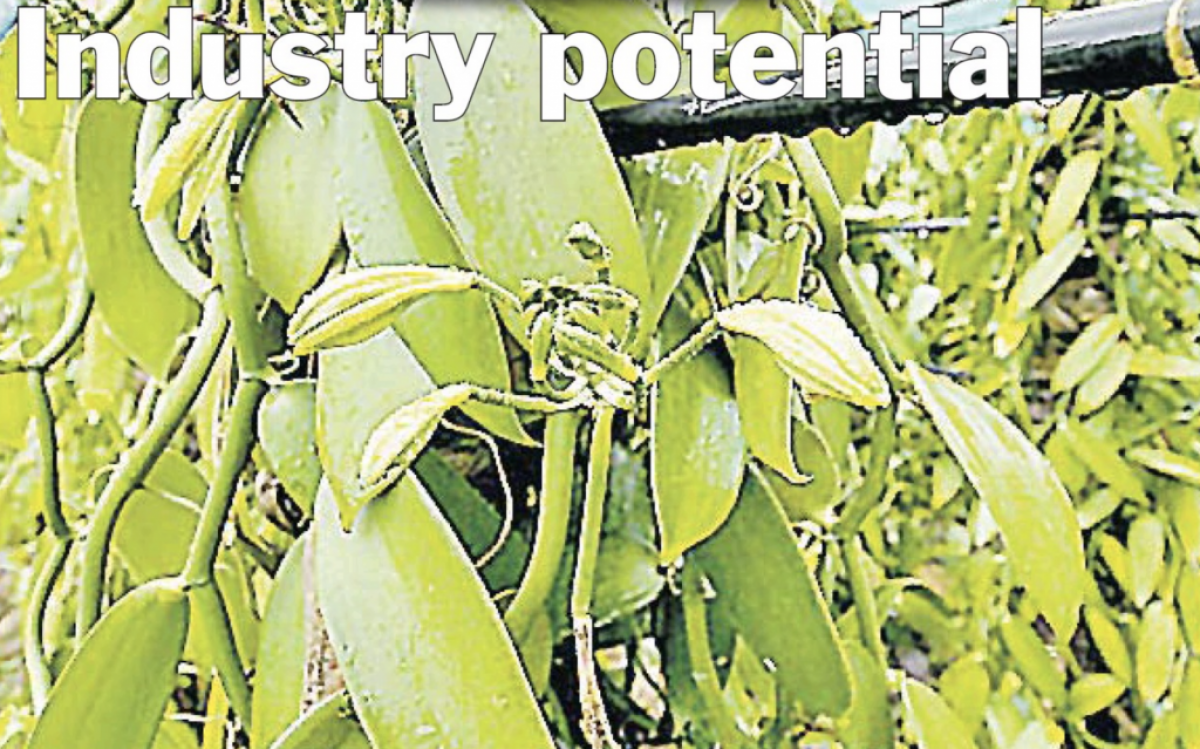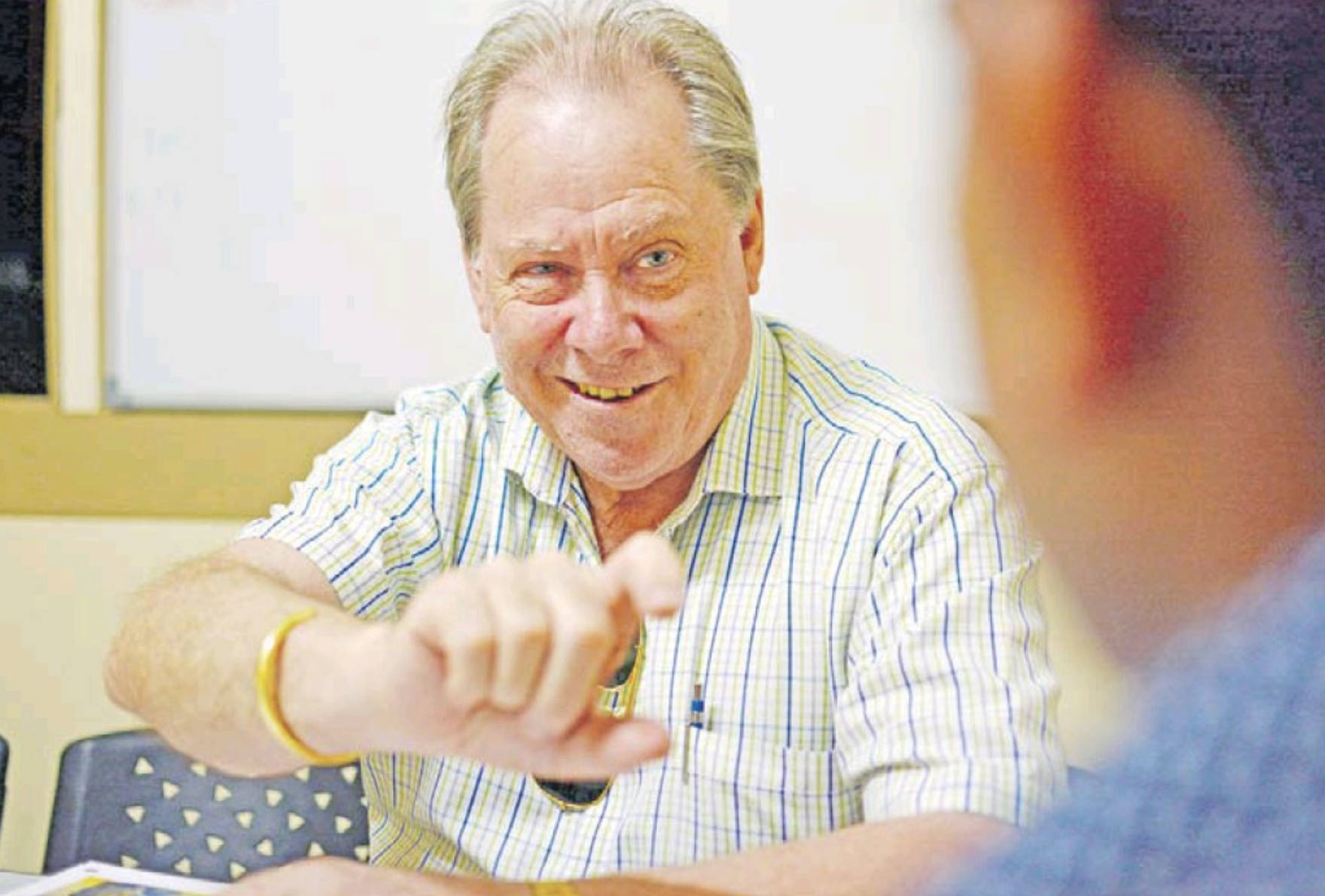SPOTLIGHT BUSINESS
www.fijitimes.com

Vanilla Plantation Pte Ltd managing director Frederick Gulson is establishing a vanilla farm in the Western Division.
Picture: MINDEN PICTURES
By Abishek Chand
FIJI has a great opportunity to pounce on vanilla production in the agriculture sector as there is a huge global demand which cannot be met.
This was the sentiment shared by the Vanilla Plantation Fiji Pte Ltd managing director Frederick Gulson who is establishing a vanilla farm in the Western Division.
With current plans in progress in terms of development of the infrastructure for the plantation Mr Gulson hopes to place Fiji on to the world map of vanilla production.
An agriculturist and a lawyer, Mr Gulson owns a vineyard for table grapes located in a desert which was supplied as edibles.
“We had 149 million trees under cultivation and a number of other things that we did,” he said.
“So, we are a large agriculturist.”
He added vanilla prices were rising and he had gotten a scope of its value in the market and cultivation around the globe.
“The going price now US$575 (Fiji $1249) a kilo which is more than silver,” he said.
According to Mr Gulson they had managed to pick a dry and flat area between Tavua and Rakiraki to set up the process of vanilla farming.
He said there was a need for careful consideration as to where vanilla was grown as most of the crops in the country were grown in wet areas which limited the production.
“The problem with that is the orchid doesn’t like to be wet, it doesn’t like to have its root in water for very long.
“We got three systems of water one is a drip irrigation, fine mist and the next one is a fairly standard big sprinkler,” Mr Gulson mentioned in regard to his farm.
He said this allowed them to change the humidity or water the plants which were all done under a shade cloth.
“To get them to flower you got to starve them of water and you can’t do that if you are in wetlands.
“So, you will get a poor yield because they will flower but not very well.”
Each flower has to be separately hand pollinated which according to Mr Gulson was very labour intensive.
“Fiji was a big producer 100 years ago, and for some reason they have stopped cultivating it and I think it’s because fruits, pineapple and sugar cane paid more.”
The plantation Mr Gulson has set up is said to be 40 acres which would contain 60,000 plus vines with rooms to expand.
“We are at the preliminary stage,” he said.
The reason he chose Fiji was not only because of the English language proficiency and the infrastructure but also the sovereign risk.
“One of the things is and it’s critical because all of the countries that grow it are third world, Papua New Guinea, Indonesia, Madagascar, Southern India and Central America,” he said.
“I wouldn’t say they are third world, but they have their own political problems.
“We address the issue of country risk and Moody’s which is an international rating agency said it has raised Fiji’s rating from B1 to B1+, a significant rise and that’s because it’s gone from stable, post coop to positive.”
Political stability, policy reforms and improved funding conditions were also factors that played into this decision.
He said according to the World Bank the financial system was stable and Fiji was classified as an upper middle-income economy.
“That was very critical to us because it showed us the foundations were right and you are not going to get something out and have it expropriated.
“So, the country risk is very important.”
He said this applied to everybody: “It applies to us because we are coming from the outside in, but it applies all the time.
“We call it country risk or sovereign risk, in other words it’s the risk of the government.”
He said most of the countries which could grow vanilla lay along the equator.
“All the producers are along the equator, Fiji sits on it, Tahiti sits on it, Papua New Guinea, Indonesia, India, the Comoro Islands and Madagascar is the biggest one 80 per cent.”
This was a problem for big food companies as according to Mr Gulson it was too concentrated.
“They are already having trouble getting the beans now, they don’t want to end up with Madagascar producing more beans and increasing their percentage because they are losing their ability to control the market and their ability to attract other sources.
“Nestle have said they need to find other sources and what they are talking about is other countries, to break their dependent on 80 per cent,” he said.
“Well it’s too tricky, you don’t put all your eggs in one basket.”
Mr Gulson said there was a huge undersupply and they wanted to have a sustainable yield at a sustainable price.
“In other words, we want to improve as little as we are and be part and parcel of getting supply and demand into better balance, at the moment it’s all over the place,” he said.

Frederick Gulson says they had managed to pick a dry and flat area between Tavua and Rakiraki to set up the process of vanilla farming. Picture: ELIKI NUKUTABU
Referring to a quote by food processing company Mintek he said in 2016 the world market was experiencing some supply shortages.
He said to put it into context the global demand was 3500 tonnes with the global production being around 2400 tonnes.
“There is no more vanilla to buy,” he said.
He said this was echoed by Lawerance Kurzius, chief executive of McCormick & Company an Americans price and food ingredients company.
“He told investors at the company’s first quarter result that he sees high vanilla pricing continuing certain world parts in 2019,” said Mr Gulson.
He said their plantation was too small to stabilise the shortage however their production would provide a certain top up or an alternative.
“We can’t produce 2000 tonnes and neither do we intend to.”
He said they would however be able to contribute to the sector meaningfully.
“Fiji can pounce on this because it’s already done this and it’s doing it but in small ways.”
The biggest users of vanilla are the US and Fiji is placed between US and Australia which according to Mr Gulson was geographically ideal.
He plans to train 40 local staff to work on the farm as it’s a complex and intricate process to harvest vanilla.
He said they were hoping to employ women and the process of pollination was quite delicate and Mr Gulson believes women would work more efficiently and quicker in this aspect.
A link to the original article can be found below.
https://www.pressreader.com/fiji/the-fiji-times/20200207/281831465727090
16 THE FIJI TIMES – FRIDAY, FEBRUARY 7, 2020